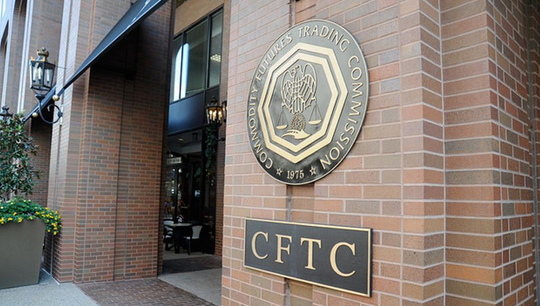Delivering the “World’s Most Innovative and Competitive Global Financial Centre” – Regulatory Reform in the UK
Published: 26 January 2023
Delivering the “World’s Most Innovative and Competitive Global Financial Centre” – Regulatory Reform in the UK
The UK government has long made clear its desire to take advantage of Brexit freedoms and improve the UK’s financial services regulatory framework.
In a latest step to achieve its ambitions, a package of 30 reforms, the “Edinburgh Reforms”, were announced by the UK’s Chancellor of the Exchequer in December 2022. The reforms are expansive. They include new secondary objectives for the Financial Conduct Authority (FCA) and Prudential Regulation Authority of supporting medium to long-term economic growth and promoting the UK’s international competitiveness, as well as amendments to banking regulation and changes aimed at the funds sector. But will they deliver real benefits for our industry? Well, they should, but there is still more to do. Let’s take a deeper look.
1. Wholesale Markets Review (WMR)
Under the WMR, launched by HM Treasury (HMT) in 2021, proposals were made to improve certain rules under the onshored EU Markets in Financial Instruments Directive II (MiFID II) and Markets in Financial Instruments Regulation (MiFIR) that have not delivered their intended benefits. While a large proportion is being taken forward, such as removing the Double Volume Cap and Share Trading Obligation, others required further work or FCA consultation.
The Edinburgh Reforms put some of these WMR proposals into action, such as bringing forward secondary legislation in Q1 2023 to remove regulatory burdens for firms trading commodity derivatives as an ancillary activity; providing a timeline for the creation of a regulatory regime to support consolidated tapes for market data; and laying a statutory instrument before Parliament to remove burdensome requirements related to investor reporting rules, including a revocation of Article 62 of the UK version of the MiFID Org Regulation (additional reporting obligations for portfolio management or contingent liability transactions) which came into force in mid-January.
However, the Edinburgh Reforms also go further and introduce some new developments. The first is a reform of investment research. While recent changes have been made around SME and third-party fixed income currencies and commodities research, the Government has announced an independent review, which will include a review of the effects of unbundling rules under the EU’s MiFID II. Additionally, as a global first, the Edinburgh Reforms set out the Government’s intention to bring forward a new class of wholesale market venue which would operate on an intermittent trading basis, to act as a bridge between public and private markets. The establishment of a new industry-led Accelerated Settlement Taskforce to explore the potential of faster settlement of financial trades in the UK has also been announced.
2. Environmental, Social and Governance (ESG)
Three developments have been announced in respect of ESG: (1) the publication of an updated Green Finance Strategy in early 2023; (2) a consultation in Q1 2023 on bringing ESG rating providers into the regulatory perimeter; and (3) HMT joining an industry led ESG Data and Ratings Code of Conduct Working Group with a mandate to develop a voluntary Code of Conduct for ESG data and rating providers.
With significant growth in the ESG ratings market and problems such as lack of transparency over the methodologies used and delays in updates to ratings, there is no doubt that a consideration of regulation is needed. However, ratings are only as good as the data on which they are based – ensuring the quality and accessibility of underlying ESG data is, from our perspective, key.
3. Short Selling
Seeking to tailor onshored EU short selling rules to UK markets, the Government has published a Call for Evidence on the Short Selling Regulation. Current short selling rules are, in our view, disproportionate and poorly designed. We are keen to see the end of the obligation to disclose individual net short positions publicly and changes to the supervisory notification threshold to make the framework less burdensome. Thus, the review is a well-needed initial step and AIMA will be submitting a response with proposed reforms ahead of the 5 March 2023 deadline.
4. Tax
With regard to tax reforms, firstly a consultation has been issued on VAT treatment of fund management. Brief in nature, the consultation proposes limited measures to codify existing policy and improve its legislative basis. While this would provide legal certainty, the Government stops short of proposing any policy changes, which we believe would be necessary to support management of UK established professional investor funds. It is unclear whether the rather broader consultation on VAT treatment of fund management which the industry has been awaiting will proceed.
In the field of digital assets good progress has been made. The Government has expanded the Investment Transactions List used for the purposes of the Investment Manager Exemption to include digital assets (subject to some exceptions). This will provide tax certainty and facilitate their inclusion in the portfolios of overseas funds managed in the UK. The legislation enacting the change came into effect on 1 January 2023 and applies retrospectively from 1 April 2022. We had requested this measure for some time.
A final reform relates to Real Estate Investment Trusts (REITs). The Government has announced new tax rules, removing the requirement for a REIT to own at least three properties where it holds a single commercial property worth at least £20 million. The rules will take effect from April 2023. These measures build on the success of the Qualifying Asset Holding Company (QAHC) regime introduced in 2022 which, like the long-term asset fund (LTAF), was introduced by the Government under its review of the UK Funds Regime. However, we believe that there are more tax measures which the Government should bring forward to support the UK asset management industry.
Three years have passed since the signing of the Brexit “Withdrawal Agreement” and work to reform the UK’s financial services regulatory landscape is only now developing. Will the Government be able to deliver on its promise to create the “world’s most innovative and competitive global financial centre”? Maybe. There is no doubt that it has the drive to. It is clear the Government and regulators are keen to understand firms’ needs, deficiencies in the existing regulatory framework and how they can be resolved. Some reforms are already in place, such as the removal of RTS 27 and RTS 28 best execution reporting requirements. Others await the enactment of the Financial Services and Markets Bill, which is currently undergoing scrutiny in the House of Lords and is expected to receive Royal Assent in Spring 2023, and many are in a consultative stage. Thus, the overall direction appears positive, however any benefits to the industry may not be felt for a while.
Comprehensive industry engagement is necessary to facilitate the best outcome and AIMA is committed to promoting the interests of our member firms. As work to reform the UK’s financial services regulatory framework continues, we will be responding to consultations and remaining engaged with key policymakers and regulators. If you would like to learn more or join our dedicated working groups and contribute to AIMA’s advocacy, please reach out to AIMA’s Markets, Governance and Innovation team at [email protected].











